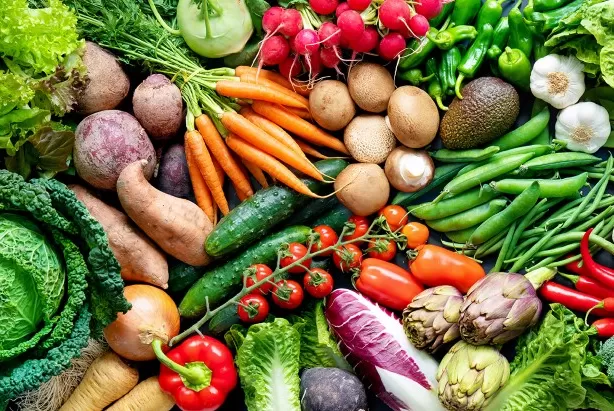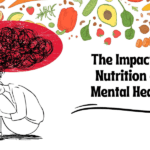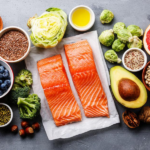Vegetables are the cornerstone of a healthy diet. They are packed with essential nutrients, fiber, and powerful antioxidants that promote overall well-being. Incorporating them into our daily meals is not just about variety and flavor; it is about ensuring our bodies receive the sustenance they need to thrive. In this blog, we will explore why they are vital, their nutritional benefits, and practical ways to include them in your diet.
Nutritional Powerhouses
They are rich in vitamins, minerals, and other nutrients that our bodies need to function optimally. Here are some key nutrients found in garden crops:
Vitamins:
- Vitamin C (found in bell peppers, broccoli, and kale): boosts immunity and supports skin health.
- Vitamin A (found in carrots, sweet potatoes, and spinach): Promotes healthy vision and immune function.
- Vitamin K (found in leafy greens like kale and spinach): essential for blood clotting and bone health.
Minerals:
- Potassium (found in potatoes, tomatoes, and zucchini): regulates blood pressure and supports muscle function.
- Iron (found in spinach, peas, and lentils): vital for red blood cell production and oxygen transport.
- Calcium (found in broccoli, collard greens, and bok choy): Strengthens bones and teeth.
Fiber:
Dietary fiber, abundant in most garden crops, aids digestion, prevents constipation, and helps maintain a healthy weight by promoting a feeling of fullness.
Health Benefits of Vegetables

Disease Prevention:
They are packed with antioxidants, compounds that neutralize harmful free radicals in the body. This action reduces the risk of chronic diseases such as cancer, heart disease, and diabetes. For instance, cruciferous garden crops like broccoli and Brussels sprouts contain glucosinolates, which have cancer-fighting properties.
Heart Health:
Leafy greens, such as spinach and Swiss chard, are rich in nitrates, which help lower blood pressure and improve heart health. The fiber content in them also helps reduce cholesterol levels, further promoting cardiovascular well-being.
Weight Management:
They are low in calories and high in water content, making them an ideal choice for those looking to maintain or lose weight. Their fiber content keeps you full, reducing the likelihood of overeating.
Improved Digestion:
Fiber in garden crops supports a healthy digestive system by promoting regular bowel movements and nurturing beneficial gut bacteria. This, in turn, boosts nutrient absorption and overall gut health.
Types of Vegetables and Their Unique Benefits
They come in a variety of types, each offering unique health advantages:
Leafy Greens:
Examples: Spinach, kale, lettuce
- Benefits: Rich in iron, calcium, and vitamins A, C, and K; excellent for bone and eye health.
Cruciferous Plant foods:
Examples: Broccoli, cauliflower, cabbage
- Benefits: High in fiber and antioxidants; support liver detoxification and cancer prevention.
Root Plant foods:
Examples: Carrots, beets, radishes
- Benefits: Packed with vitamins and minerals; provide sustained energy due to complex carbohydrates.
Nightshade Plant foods:
Examples: Tomatoes, eggplants, peppers
- Benefits: High in vitamins C and E; support skin health and immune function.
Legumes:
Examples: Peas, lentils, chickpeas
- Benefits: High in protein and fiber; excellent for muscle repair and digestive health.
How to Incorporate More Plant foods into Your Diet
Increasing vegetable consumption doesn’t have to be a daunting task. Here are practical tips to make garden crops a regular part of your meals:
Start Your Day with Plant foods:
- Add spinach or tomatoes to your omelet.
- Blend kale or cucumber into your morning smoothie.
Make Plant foods the Star:
- Opt for vegetable-based soups and stews.
- Prepare stir fries with a variety of colorful garden crops.
Snack Smart:
- Replace chips with carrot sticks, celery, or bell pepper slices.
- Pair them with hummus or guacamole for a healthy snack.
Experiment with Cooking Methods:
- Steam or grill garden crops for a quick and nutritious side dish.
- Roast plant foods like Brussels sprouts and sweet potatoes for added flavor.
Incorporate into Main Dishes:
- Add zucchini or spinach to pasta dishes.
- Use cauliflower rice or zucchini noodles as low-carb alternatives.
Common Myths About Vegetables
Despite their benefits, several myths surround their consumption:
Frozen Vegetables Are Less Nutritious:
Fact: Frozen garden crops are often flash-frozen at peak ripeness, retaining their nutrients. They are a convenient and healthy option.
Plant foods Are Boring:
Fact: With the right spices, herbs, and cooking techniques, they can be as exciting and flavorful as any other food.
Only Fresh Vegetables Are Healthy:
Fact: Canned and dried plant foods can also be nutritious, provided they are free of added sugars or excessive sodium.
Special Considerations
While they are universally beneficial, some individuals may need to consider specific factors:
Allergies and Sensitivities:
Certain it, like nightshades, can trigger sensitivities in some individuals. Consult a healthcare professional if you suspect an allergy.
Pesticide Residue:
Opt for organic garden crops when possible to reduce exposure to harmful pesticides. Washing them thoroughly can also help.
Balanced Diet:
While they are vital, they should be part of a balanced diet that includes proteins, healthy fats, and whole grains.
Global Perspectives on Vegetable Consumption
They are a staple in cuisines worldwide, each culture showcasing their unique preparation methods:
- Mediterranean Diet: Emphasizes fresh garden crops, olive oil, and herbs.
- Asian Cuisine: Features stir-fried, steamed, and fermented vegetables.
- Latin American Cuisine: Incorporates root vegetables and vibrant salsas.
Final Thought
They are a vital component of a balanced and nutritious diet. Their unparalleled health benefits, versatility, and variety make them indispensable. Whether your goal is disease prevention, weight management, or overall health, incorporating a wide range of vegetables into your meals is a step in the right direction. Start today and discover the profound impact they have on your well-being.















